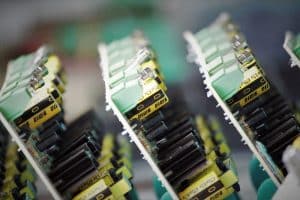The Future of Fuel Stations: Multi-Energy Hubs
The traditional fuel station concept has long been a staple in transportation and travel for decades. But with the increasing demand for alternative sources of energy and the rise of electric vehicles, the future of fuel stations is beginning to take a new shape – the multi-energy hub. These hubs not only offer traditional gasoline and diesel fuels, but also provide a range of alternative energy sources like electricity, hydrogen, and biofuels. This article explores the emerging trend of multi-energy hubs and how they are poised to revolutionize the fuel station industry.
The Rise of Multi-Energy Hubs
In recent years, there has been a significant shift towards cleaner and more sustainable forms of energy. This has resulted in the rise of electric and hybrid vehicles, as well as an increased demand for alternative fuels like hydrogen and biofuels. As a response to this changing landscape, the concept of multi-energy hubs has gained significant traction. These hubs are essentially fuel stations that offer a wide range of energy sources, catering to the diverse needs of modern-day vehicles. They essentially serve as a one-stop-shop for all your refueling needs.
Benefits of Multi-Energy Hubs
The concept of multi-energy hubs offers a host of benefits for both consumers and fuel station owners. For consumers, the convenience of having multiple energy options in one location is undeniable. Rather than having to search for different fuel stations for different vehicle types, multi-energy hubs offer a simplified and streamlined experience. They also provide a sense of reassurance for electric vehicle owners who may be concerned about range anxiety – the fear of running out of charge while on the road.
For fuel station owners, multi-energy hubs offer a competitive edge in the market. With the increasing demand for alternative energy sources, offering a diverse range of fuel options can attract more customers and drive revenue. They also help to future-proof the business, ensuring its sustainability in an ever-evolving market.
Challenges and Solutions
Despite the many benefits that multi-energy hubs offer, there are also some challenges that come with implementing this concept. One of the major hurdles is the need for considerable investment in infrastructure and technology. Electric vehicle charging stations, for instance, require a significant upfront cost and ongoing maintenance. To overcome this, some fuel station owners have partnered with energy companies to share the costs and resources needed for implementing and maintaining alternative fuel sources.
Another challenge is the lack of clear regulations and policies related to multi-energy hubs. As this is a relatively new concept, there are often unclear guidelines and standards for fuel station owners to follow. However, as the demand for alternative energy sources continues to grow, it is expected that governments will establish clearer regulations in this area.
The Future of Fuel Stations
Multi-energy hubs are certainly disrupting the traditional fuel station model and are poised to play a significant role in the future of transportation. As electric and hybrid vehicles become more mainstream, the demand for alternative energy sources will only continue to increase. It is predicted that by 2050, over 50% of vehicles worldwide will be electric or hydrogen powered. With this in mind, it is clear that the future of fuel stations will involve offering a diverse range of energy options.
The emergence of multi-energy hubs also presents an opportunity for small and independent fuel stations to compete with larger, established ones. By offering a variety of energy sources, these smaller stations can attract a wider customer base and stay relevant in the market.
Conclusion
The future of fuel stations is undoubtedly headed towards a multi-energy hub model. With the growing demand for alternative energy sources and the need for more sustainable transportation, these hubs offer a solution that caters to the diverse needs of modern-day vehicles. While there are some challenges to overcome, it is clear that this concept is here to stay. As technology continues to evolve and governments establish clearer regulations, we can expect to see even more multi-energy hubs popping up around the world, transforming the way we think about refueling.










